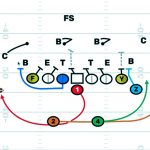Golf, a sport cherished for its blend of skill, strategy, and outdoor enjoyment, often leaves players pondering the quality of their game.
One common question is, “What is a good golf score for 9 holes?” Understanding this can be crucial for personal improvement and for measuring up against peers.
A good golf score is subjective, varying with factors like experience, age, gender, and course difficulty.
For beginners, just learning proper form and club selection, knowing what score to aim for can be particularly challenging. Tracking scores over time not only helps in skill development but also adds to the enjoyment of the game.
While many play golf for exercise, social interaction, and the great outdoors, keeping an eye on your score can bring additional satisfaction.
Whether you’re a novice or a seasoned player, this guide will help you understand what constitutes a good score for 9 holes and how you can strive to achieve it.
Understanding Golf Scores for 9 Holes
Average and Range of Scores
Golf scores for 9 holes vary widely based on player skill level, course difficulty, and other factors. The average recreational golfer scores around 45 on a standard par 36 course. For beginners, scores can exceed 60, while more experienced golfers typically aim for scores in the low 40s or high 30s.
Scores tend to cluster in different ranges:
- Beginners: 55-70
- Intermediate: 40-55
- Advanced: 30-40
What Constitutes a Good, Average, or Poor Score?
A good score for 9 holes often depends on the player’s skill and experience. Beginners should aim for scores under 60, while intermediate players are happy with scores in the 40 to 55 range. Advanced golfers and professionals target scores under 40.
- Good Score: Under 40
- Average Score: 40-55
- Poor Score: Over 55
Understanding the context behind these scores helps players set realistic goals and measure progress. Tracking improvements over time can provide useful insights for personal development in the sport.
Benchmarking a Good 9-Hole Score
Benchmarking a good 9-hole score in golf can vary depending on factors like the difficulty of the course, the player’s skill level, and the conditions on the day of play. However, there are some general guidelines to consider:
Score Goals for Beginners
Beginners typically aim for scores around 60 on a par 36 course. This provides a realistic target, considering their developing skill set.
Factors impacting scores include course difficulty and weather conditions. Tracking progress helps identify areas needing improvement, such as driving accuracy or putting consistency.
Expectations for Intermediate Players
Intermediate players generally score between 45 and 55 on a par 36 course. These players have more experience and finer skill sets compared to beginners.
Consistency and accuracy become priorities, as reducing strokes through better shot selection and strategic play leads to lower scores. Practice routines focusing on short game and mid-iron shots can further enhance performance.
What Expert Golfers Aim For?
Expert golfers aim for scores in the low 40s or high 30s on a par 36 course. These players exhibit advanced skills, precise shot-making, and strategic course management.
Mastery in various playing conditions and adaptability contribute to maintaining low scores. Setting personal benchmarks helps seasoned players refine their game continually, aiming for par or better in most rounds.
Key Factors Affecting Your 9-Hole Golf Score
Several key factors can significantly influence your 9-hole golf score:
Course Difficulty and Conditions
Course difficulty directly impacts your 9-hole golf score. Variable terrain, water hazards, bunkers, and rough areas all create challenges.
A course with more obstacles requires more precision and skill. Weather conditions also affect play; wind, rain, and temperature changes can all alter shot accuracy and distance.
The effective playing length of the course, influenced by elevation and terrain, further contributes to score variance. Aim to understand these factors before playing to perform better.
Golfer’s Experience and Skill Level
Experience and skill level play crucial roles in determining a 9-hole golf score. Beginners often score higher due to less refined techniques and inconsistent play. As golfers gain experience, scores usually improve alongside enhanced skills.
Practice focusing on accuracy, consistency, and developing a solid short game. For seasoned players, scores can range from mid-40s to high-30s on a par 36 course. Progress is achieved through regular practice and learning from each game.
Practical Strategies to Improve Your 9-Hole Golf Score
Improving your 9-hole golf score requires a combination of practice, strategy, and mental fortitude. Here are some practical strategies to help you achieve better scores:
Focus on the Short Game
Improving the short game, including putting, chipping, and pitching, can significantly lower golf scores.
Players should dedicate ample practice time to these crucial skills and develop a smooth, repeatable technique for chips and pitches to improve consistency.
On the practice green, golfers can focus on honing their putting stroke to better control speed and direction. Additionally, mastering bunker shots and getting comfortable with different types of lies around the green can enhance overall performance.
Consistent Practice Routines
A consistent practice routine is crucial for progress. Players should create a balanced schedule covering all game aspects: driving, iron play, and the short game.
Structured sessions emphasizing control and precision drills are beneficial. Practicing with specific goals, like hitting a given number of fairways or greens, keeps efforts focused and productive. Regular practice rounds and scenarios such as limited club usage also enhance skills and adaptability.
Mental Game and Course Strategy
A strong mental game and strategic course management are essential for improving golf scores. Consistent practice of a pre-shot routine, like deep breathing, visualization, and practice swings, helps maintain focus.
Staying calm under pressure and keeping a positive mindset prevent mistakes and build confidence. Assessing each hole’s challenges, such as hazards and wind conditions, allows for better shot planning and risk management.
Understanding personal strengths can also guide strategic decisions. These strategies can lead to lower scores and a more enjoyable 9-hole golfing experience.
Frequently Asked Questions
What is considered a good golf score for 9 holes?
A good score can vary depending on skill level. Beginners may aim for 55-65, while intermediate players might score between 45-55. Expert golfers usually score under 40.
How can I improve my 9-hole golf scores?
Focus on enhancing your short game, establishing consistent practice routines, and emphasizing the mental game and course strategy. These strategies can help lower scores and improve overall performance.
Why is tracking my golf scores important?
Tracking scores helps monitor personal growth, identify areas for improvement, and increases enjoyment of the game. It provides actionable feedback for golfers of all levels.
What score should a recreational golfer aim for on 9 holes?
Recreational golfers typically aim for scores between 45 and 55 on a standard 9-hole course, depending on experience and course difficulty.
Conclusion
Achieving a good golf score for 9 holes varies greatly among individuals but focusing on personal growth and enjoyment can make the game more rewarding.
By working on the short game, establishing consistent practice routines, and emphasizing mental toughness and course strategy, golfers can see significant improvements.
These strategies not only help lower scores but also enhance the overall golfing experience. Remember, the journey to better scores is as important as the destination.
Moreover, tracking your progress over time can provide valuable insights and set realistic benchmarks.
Whether you’re a beginner aiming for 50 or an experienced player targeting under 40, consistent effort and a positive mindset are key to achieving your goals.








Colin McCarthy